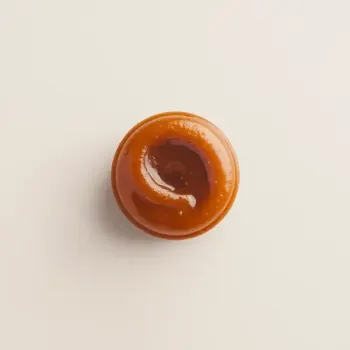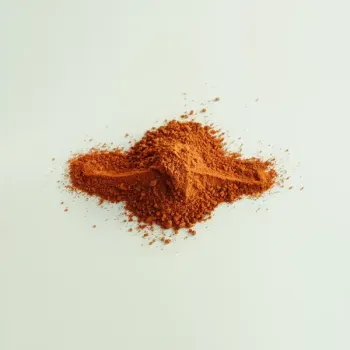Hot Sauce and Chili Powder are distinct cooking ingredients; hot sauce is a liquid condiment made from chili peppers and vinegar, adding immediate heat and tanginess, while chili powder is a dry spice blend providing a milder, smoky flavor to dishes.

Hot sauce is a liquid condiment typically made from chili peppers, vinegar, and other seasonings. It adds both heat and a tangy, complex flavor to dishes and is used sparingly to adjust the spice level to one's liking.

Chili powder is a spice blend that includes ground dried chili peppers along with other spices such as cumin, garlic powder, and oregano. It offers a milder heat compared to hot sauce and contributes to the overall flavor profile of a dish.
Hot sauce and chili powder differ in consistency, flavor, and the way they incorporate into dishes. Hot sauce is a wet condiment that offers a sharp, immediate heat, while chili powder is dry and imparts a complex, smoky flavor. The source of heat also varies, with hot sauce often using fresh or fermented peppers, and chili powder using dried peppers.

Your ultimate Recipe Box, Meal Planner, and Cooking Class all in one
Ideal for finishing dishes like tacos and fajitas, hot sauce adds a bright, vinegary kick. It's perfect for drizzling over nachos or stirring into queso for a spicy touch. Chili powder is the backbone of chili con carne and enchilada sauce, providing depth and warmth. It's also great for seasoning meats and beans, adding a rich, earthy heat.
In marinades, hot sauce can tenderize and inject bold flavor into meats like chicken wings or pork. Use it sparingly to avoid overpowering other flavors. Chili powder works wonders in dry rubs for barbecue, lending a subtle, smoldering heat that caramelizes beautifully. It's a staple in spice mixes for smoking and grilling.
A few dashes of hot sauce can brighten up and add complexity to soups and stews, especially creamy or tomato-based ones like chowder or gumbo. Chili powder is essential in building layers of flavor in hearty stews and soups like lentil soup or beef stew. Its mellow heat permeates the dish for a comforting warmth.
While hot sauce can add heat to a dish in a pinch, it won't replicate the complex flavors of chili powder. Conversely, chili powder can be used for its heat, but it may not provide the same tangy zing as hot sauce. In both cases, the texture and moisture content of the dish may be affected, so adjustments should be made carefully.
Both hot sauce and chili powder are low in calories and can be part of a healthy diet in moderation.
| Nutrient | Hot Sauce ( per Teaspoon ) | Chili Powder ( per Teaspoon ) |
|---|---|---|
| Fat | 0g | 0.4g |
| Sodium | 190mg | 5mg |
| Protein | 0g | 0.4g |
| Calories | 5 | 8 |
| Vitamin C | 2% | |
| Carbohydrates | 1g | 1.4g |